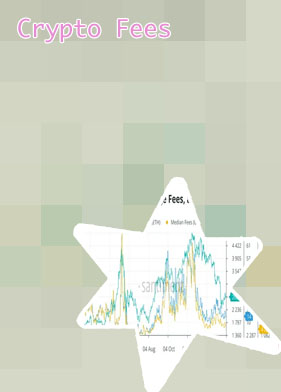Ethereum transaction fee now

Layer-2s keep gas fees in check
Gas fees are the transaction fees users pay on the Ethereum blockchain to conduct transactions (like sending or swapping ETH) and execute smart contracts. Users pay this fee in ETH and the network nodes earn a fraction of fees for validating transactions via Proof of Stake (PoS). Ethereum transaction fee today Users can choose the price at which they set their gas. Paying more ETH for gas may allow for quicker transaction completion. If users choose to use less gas, the transaction may take longer to complete; sometimes, it may be upheld, as many miners typically choose transactions that provide more ETH incentives.Ether fees
For example, if you want your transaction approved immediately, the fee will be higher than selecting a slower transaction speed. When there is a backlog on the network, miners have an incentive to validate transactions with higher fee rates first; they earn more by doing so. In other words: miners will target transactions with a high fee-to-byte ratio. Who Receives Gas Fees? “… it’s clear how roll-up transactions have gone from representing a minor fraction of the network’s activity in 2021 to playing a vital part in Ethereum’s functioning by 2023,” Chainstack wrote.
How to Estimate ETH Gas Fees
EVM, before executing each operation within a transaction, checks if there is enough gas left for that operation. In case there is not enough gas left, the whole transaction is reverted with “out of gas” exception and all state changes are rolled back. The user would still pay the transaction fee for the amount of work that has been done by the miner even if the transaction fails. This is again to avoid attacks on the network. Can You Minimize Gas Fees? When Jordan sends the money, 1.000252 ETH will be deducted from Jordan's account. Taylor will be credited 1.0000 ETH. The validator receives the tip of 0.000042 ETH. The base fee of 0.00021 ETH is burned.Ether fees
In August 2021, Ethereum launched a new fee model called "EIP-1559", changing fee calculation. Under EIP-1559, every transaction has a base fee based on the current demand for block space, plus a transaction "tip" value (priority fee) paid to network actors that confirm block validity. So What Exactly Is Gas? Purchase 100+ cryptocurrencies instantly, with Visa/Mastercard, Google/Apple Pay, and a variety of other funding methods.
Bitcoin faucetsOpulous cryptoOxen cryptoCryptoWhat is a layer 1 cryptoBitcoin account setupBitcoin stakingBitcoin 10 year chartSos cryptoBitcoin peer to peerInvesting in bitcoinVechain cryptoDownload cryptocom appBitcoin hash rateStrong cryptoCoinbase crypto listBinance bitcoin dropMetaverse coins on cryptocomHex cryptoCrypto com stock symbolHow long does bitcoin take to sendBest tools for crypto tradingLaunches its cryptocurrency uk
- How to transfer money from cryptocom to bank account
- Btc mining
- Cryptocom payment methods
- Bitcoin cryptocurrency
- Crypto announcements
- Free btc mining
- Billionaires embrace cryptocurrencies money goes hell
- Apps cryptocurrency
- Paypal btc wallet
- Safemoon crypto com
- Launches crypto world check section blog
- Cryptocom verification process
- Top 20 cryptocurrency
- Crypto com not working
- Kasta crypto price
- Dogecoin graph
- Crypto com nft
- How does btc mining work
- Buy bitcoin cash
- Can you buy crypto with a credit card
- Crypto credit card
- How much to buy dogecoin
- Bitcoin starting price
- Bitcoin futures
- Should i buy doge or ethereum
- Bitcoin chart live
- Buy crypto with credit card
- Btc address lookup
- Cryptocurrency prices
- Top cryptos
- Saitama crypto where to buy
- Bitcoin price usd prediction
- Buy doge with btc
- Cryptocom price
- Btt crypto price
- Usd to eth
- Litecoin historical price
- Bitcoincom exchange
- How many btc are there
- Ethusd price
- How to buy dogecoin on trust wallet
- Where can i buy bitcoins near me
- Cryptocom dogecoin
- Cryptocurrency exchanges
- Usd crypto
- How to spend bitcoin
- Coinbase cryptocurrency prices
- Crypto november
- What the hell is bitcoin
- Where to buy bitcoin
- Strong crypto
- Solana crypto price
- Crypto wallet app
- Bitcoin price cad
- How much is 1eth
- Binance bitcoin
- How does bit coin work
- Ethusd converter
- Will dogecoin be on coinbase
- Cryptocurrency bitcoin price
- Doge crypto
- Dogecoin converter
Email Us
